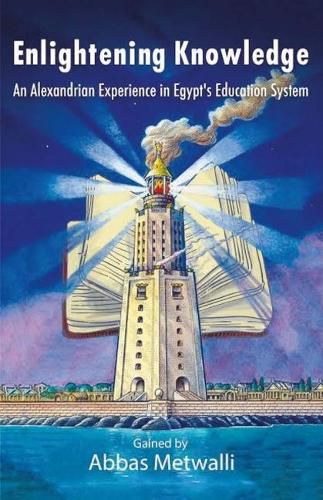Readings Newsletter
Become a Readings Member to make your shopping experience even easier.
Sign in or sign up for free!
You’re not far away from qualifying for FREE standard shipping within Australia
You’ve qualified for FREE standard shipping within Australia
The cart is loading…






The writer paints a realistic picture of the education system in Egypt from the early 1950’s to the mid-1960s, through a personal experience. It started with the primary stage, passing through the preparatory and secondary stages and culminated in university attendance. He sees that the education system then was, without doubt, much better than today. Classrooms were not overcrowded, health care was not neglected, attention to education and ethics was not absent. The teacher was not busy giving private lessons or concerned with his turn on the Secondment list. In the 1950s and 1960s, schools did not witness the violence prevailing in schools today. In the relationship between teacher and student, the slogan I become a slave to whoever teaches me even one letter , once prevalent, is now lacking. The writer reviews sport activities, the cultural, musical, recreational, and artistic performances which were an integral part of the education system. During that period, Egypt surpassed a major country like China. The author does not focus, though, on nostalgia for the past, as much as he tries to incite this nostalgia to reach a momentum that would lift the education system today to the top of State priorities.
$9.00 standard shipping within Australia
FREE standard shipping within Australia for orders over $100.00
Express & International shipping calculated at checkout
The writer paints a realistic picture of the education system in Egypt from the early 1950’s to the mid-1960s, through a personal experience. It started with the primary stage, passing through the preparatory and secondary stages and culminated in university attendance. He sees that the education system then was, without doubt, much better than today. Classrooms were not overcrowded, health care was not neglected, attention to education and ethics was not absent. The teacher was not busy giving private lessons or concerned with his turn on the Secondment list. In the 1950s and 1960s, schools did not witness the violence prevailing in schools today. In the relationship between teacher and student, the slogan I become a slave to whoever teaches me even one letter , once prevalent, is now lacking. The writer reviews sport activities, the cultural, musical, recreational, and artistic performances which were an integral part of the education system. During that period, Egypt surpassed a major country like China. The author does not focus, though, on nostalgia for the past, as much as he tries to incite this nostalgia to reach a momentum that would lift the education system today to the top of State priorities.